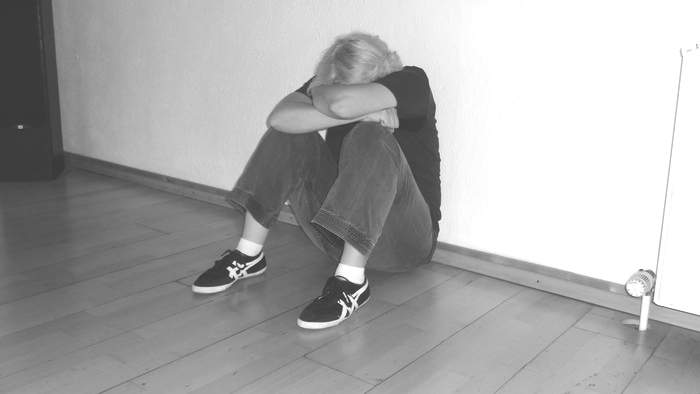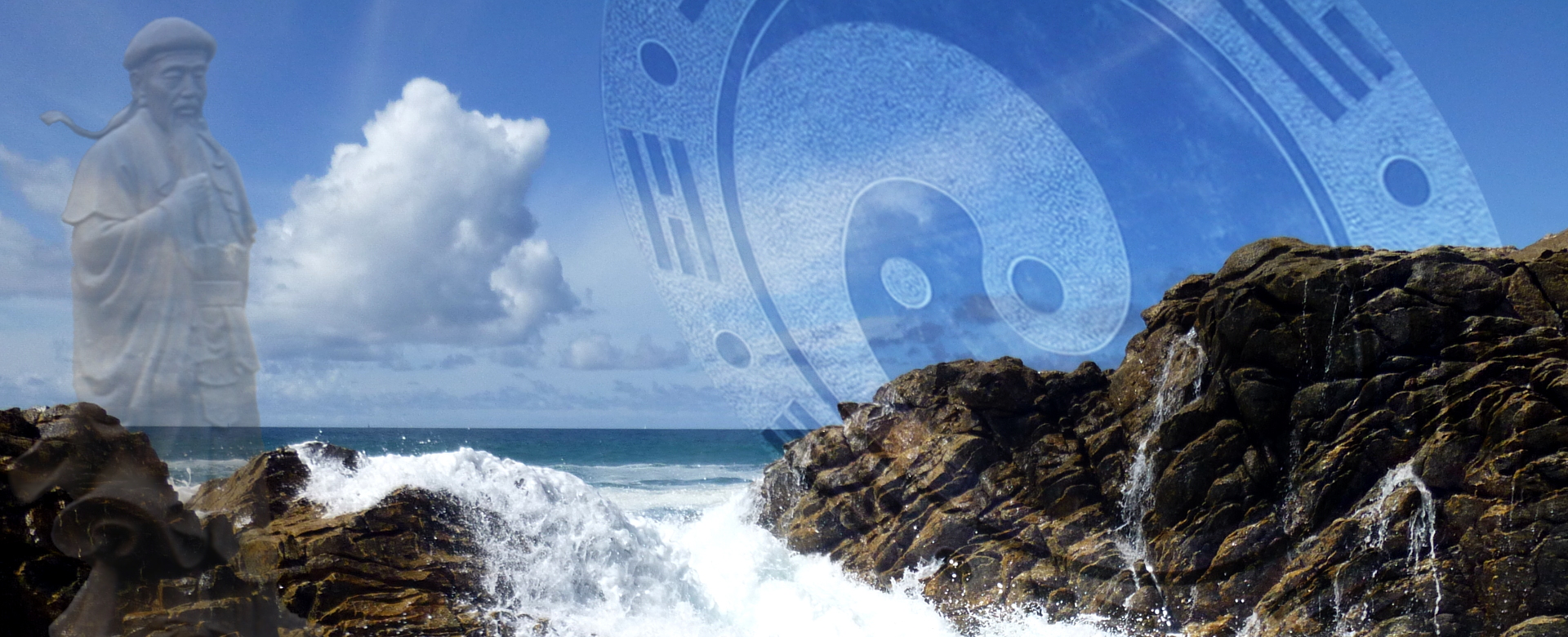Wrong Planet Syndrom - Interview with an asperger's autistic about Taijiquan

By Annemarie Leippert
Asperger Autism is a severe impairment for affected people, especially regarding dealing with the people around them. Often they feel like "aliens on another planet". In a discussion the positive influence of Taijiquan training is represented in this issue. However, my interlocutor would like to remain anonymous because these are very personal descriptions.
You have now been a student for several years in "The Pagoda". What prompted you to start with Taijiquan?
Curiosity. When I started I basically had no idea what Taijiquan was. I came in contact with Asian martial arts while studying and I liked them, but otherwise I had no idea.
You came to us with special conditions, which represented quite a challenge for us as teachers and fellow students and also for yourself. Can you tell us a bit about that?
At this point, first of all thank you that you have endured with me. I am Asperger's autistic, but was not diagnosed until adult age. I lack the natural filter that allows me to ignore irrelevant information and to put information into the right perspective - just things like facial expressions, irony etc. is hard work for me, which I have to practice hard at and learn.
Before I came to the first practice, I described briefly per E-Mail to Mr. Stubenbaum that it is rather difficult for me to deal with strangers and new things, without mention my condition, his response was that it would be in order and in the school there would be a lot of nice people, I should simply come over. "Taijiquan ensures that through discipline there is a lot of things to be discovered."
When I came to the "The Pagoda" the first month I ended up being totally overwhelmed with the many strangers, the new space, the many movements, etc., so I was constantly tense and I retreated to a corner in order to escape from the flood of information.
I can still clearly remember the first day in which you came to us, and I showed you the basic movements. After the first few minutes I realized that this would be a challenge. When someone approached you from a distance and got within one meter of you, you reacted tense and scary. No one could touch you and fast movements made you wince and you pulled your arms up in defense. I honestly felt slightly overwhelmed, as I had previously never heard of Asperger's. What moved you to continue?
Well I think we all have to learn a lot and I'm glad that I got the chance. What prompted me to keep going on? I don´t think I can say exactly, I was on the verge more than once to stop. But I think the fact that no one made a big fuss about me being different, I hate it when people touch me with kid gloves or assail me with 1000 questions. And then of course the movements themself, I love circles and everything that is round. And I found it great that you can deal first of all with yourself the first months, without much physical contact, which for me meant an additional flood of information.
You say that you particularly like circles. Do all Aspergers like them?
Many do. Circles have something soothing and fascinating - they have no beginning and no end. Circles and curves are very common in nature, take an apple or a tomato for instance, or the planets and solar systems - OK our planet runs on ellipses but these are also only long-drawn circles - in a circle the same forces acts at all points towards the center. At least as fascinating is the circle-number pi, which was until today calculated to over 1 million decimal places, is still not having periodicity! To resume, I cannot imagine how someone could not be fascinated by circles.
What fascinates you at the moment regarding Taijiquan and what aspects of it can´t be handled right by you?
The wholeness fascinates me, even though it was very hard at first get involved with the many new concepts and ways of thinking that it has, which as you know needed so many long discussions. It is especially difficult when it comes to the matters of perception, because my perception is sometimes quite different from yours, so I had to painstakingly translate certain terms in my perception, and there are still terms that are still only theoretically available in my knowledge, but still have no counterpart in my perception.
While I have liked the forms from the beginning, Tuishou (pushing hands) is not really mine - touches mean additional information and thus stress, making it very difficult to implement the principles.
Also weapon forms are for me a new challenge - firstly, because the weapon is a new source of information in my hands, which I found I was able to handle quite well after a practicing for a while, secondly, and especially for the sword and saber, because the blades punctuate light sources such as windows in bright sunlight or overhead lighting, constantly producing reflections everywhere, because of the rotation, and that triggers a veritable information thunderstorm especially in "mirror halls".
The first time, when you were learning the forms, you had to always stop as soon as we changed the direction and you would turn your back on the rest of the group. Today this is no longer the case. This is just one example of a change that has taken place within you. Can you describe what changes you have noticed in the last few years? Not only in terms of training but also in other areas of your life?
Basically very much.
First I have to explain why I found the need to stop training when the direction changed, because many people will probably not understand it. If one turns the viewing direction, i.e. the information flowing towards one, then it changes one`s own position in relation to other peoples changes. At the same time one's own position in relation to other people changes, so that the emitted information from these people change - are the people in front of you, the information is more visually, if they are behind you then everything comes through the ears, partly also from vibrations depending on the soil etc. The nature of the information processing needs to be continually readjusted all the time.
Something that works automatically in many people, I have to gradually learn first. Thus I was forced to learn new strategies for processing information, which I am trying to implement into my everyday life, so as to increase the training effect. The first advantage is that I do not react to every little change with a defensive reaction, whereby the relationship with my environment gets more and more relaxed. Due to this I´ve become more confident within myself , making communication with my fellow human beings easier. Unplanned and completely new situations still overwhelm me completely, but that is one of the conditions of Asperger´s.
From our perception however, you show a truly amazing change. At the beginning you were often found trying to hide in a squatting position in the corner, now that happen very rarely and only then if we train in an unfamiliar place. We had to develop a sense of how long we were able to leave you there alone, and when we were able to get you up again to resume training.
The convulsions (for the reader: this is hands clench into fists that cannot be opened) have slowed significantly, and lately have not been present at all.
Before, I had to make sure that your fellow classmates left you space and kept a safe distance from you. There were people who at first did not realize this and therefore did not respect your need for space and I would intervene. Today this is rarely necessary, only now when new people join the group, and when some insensitive people are around you, who do not realize that you have a problem with their vicinity.
At the beginning touching you to correct your body alignment was not possible, this could only be done verbally. Today this is no longer a big problem. Touching you went slowly, you reacted first with back tension and cramping, today you can give in to it, allowing yourself relax and to be aligned by us.
Tuishou was not possible at the beginning, and even now it is still difficult for you, but you can now practice even with total strangers Tuishou.
One difficulty is that you could not communicate with us when you had had enough, so we needed to try and recognize when the limit for you was reached. In the beginning of course, this was not always possible and things went a little wrong, with you often being overwhelmed. Meanwhile, I think we have developed a pretty good sense toward it.
Your perception of many things is in a natural way somewhat different than ours, for example you cannot differ warm and cold; the instructions we communicate with you cannot be based on feelings but rather on logical explanations. Not so easy to do without the important factor in feeling in Taijiquan. We needed to develop specific strategies for your understanding of things.
You relate today also much more relaxed with your classmates and you talk to them, at the beginning you were rather withdrawn.
Basically everything has a relaxed manner about it, as far as regarding the training in "The Pagoda". You work as an engineer in a large company, have you receive there, or in your personal environment, feedback on the changes in you?
Yes, and this has encouraged me further. Everyone today in a normal situation must look more carefully before they see that I am Asperger's, which makes things less complicated. Not that I can always arrange everything right and some things still show, but I have learned so much that it is not always immediately visible to outsiders, but now I can decide for myself if and when I tell someone that I am Asperger, previously that was impossible. But I also have feedback from colleagues and longtime friends that say dealing with me has become less complicated.
What would you advise someone who would like to teach someone with Asperger?
We Asperger vary in the degree of disability and in our abilities and in perception; this means there is no universal approach for the training of Aspergers!
To train someone with Asperger means much more effort on the Trainer than to train a "normal" person, which you can yourself confirm. In the first months and years there were so many doubts and questions asked that needed to be answered that certainly a"normal" person would not ask. Since it can lead to "extreme situations" from time to time for the Asperger, a very safe atmosphere must be created, only then is it possible in small steps to break the beloved routines and the systematic ways and processes of Aspergers, but the student must also be willing to change. As you have already told me, to teach an Asperger represents a challenge that can only succeed if the teacher is extremely sensitive and flexible. Without a wealth of experience and a great knowledge of Taijiquan, someone will not be able to customize the training to the specific needs of the Asperger student.
I thank you for this open discussion. Finally, I would say that we are very glad to have you in our "Pagoda-community". The beeing an Asperger is only a small part of you, which simply belongs to you; the rest is a compassionate, warm-hearted, helpful person you do not want to miss.
Photo above: Representation of the retracted position when the amount of information for the Asperger's is too big.

